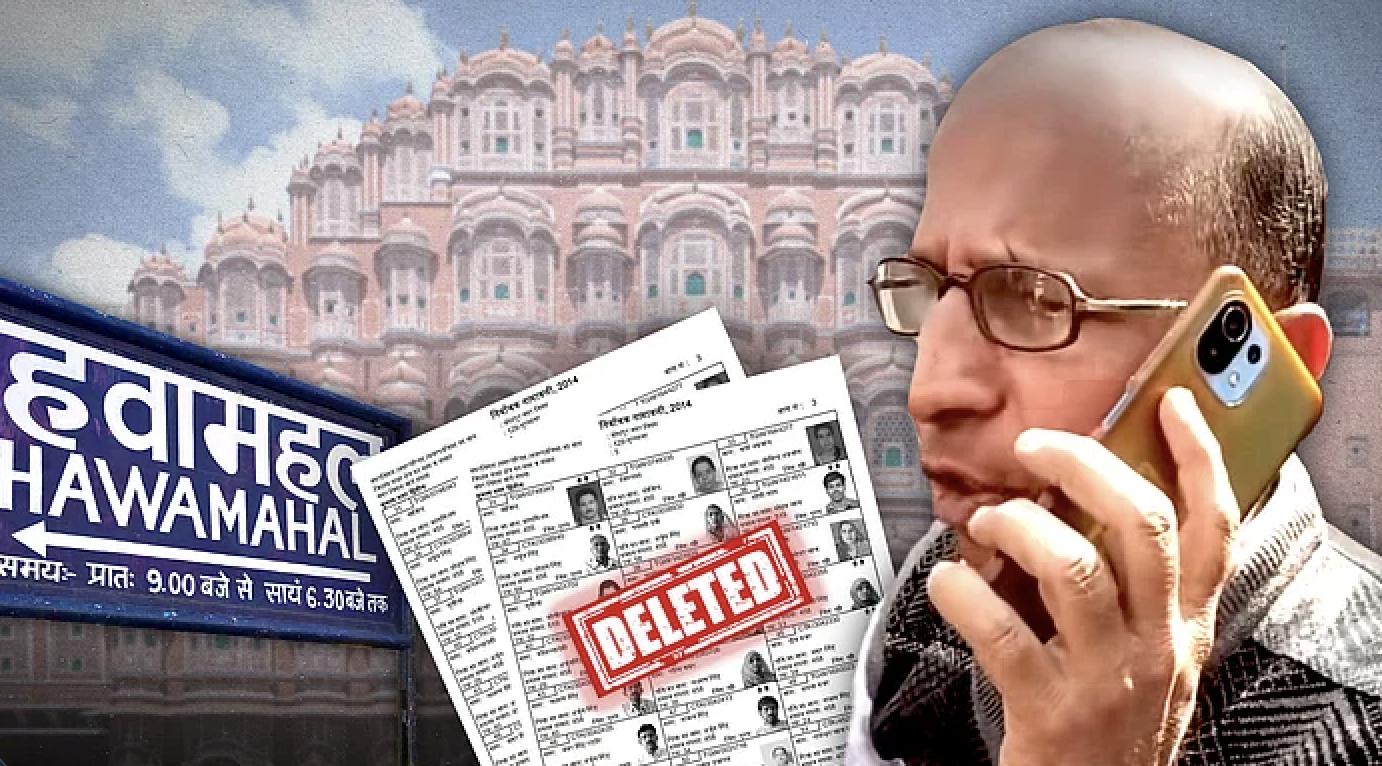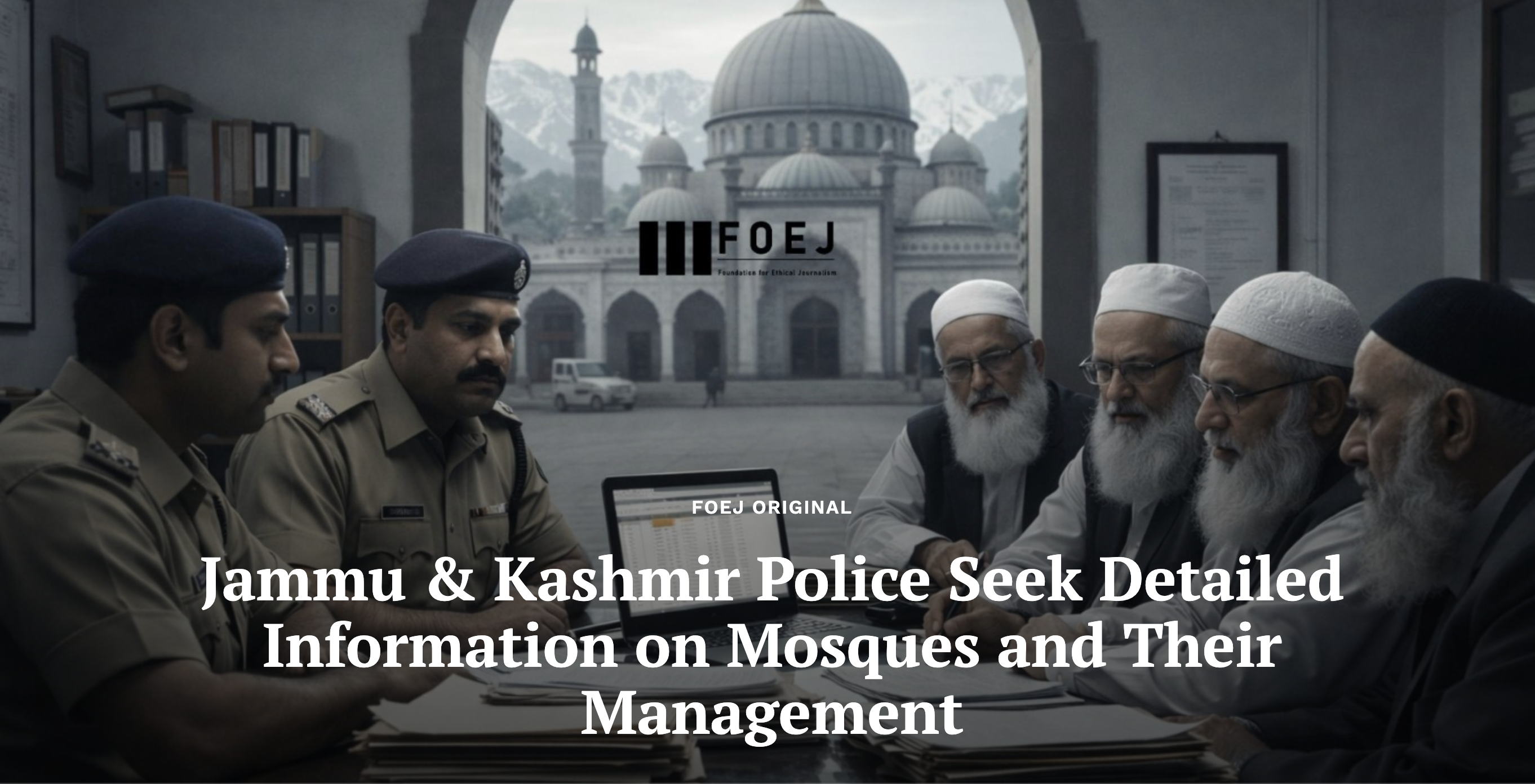
US President Joe Biden offered a glimmer of hope in April 2021 when he called out white supremacy as “the most lethal terrorist threat” to America today, but his words ring rather hollow after his acting ambassador to India, Atul Keshap, staged an 8 September photo-op with the chief of the RSS, a paramilitary that not only grew with direct inspiration from the European fascist movements of the 1930s-1940s but has inspired modern-day white supremacist terrorists.
The US Embassy’s Charge d’Affaires Atul Keshap (appointed interim envoy to India in June) celebrated his “good discussion” with RSS’s “Mohan Bhagwat about how India’s tradition of diversity, democracy, inclusivity, and pluralism can ensure the vitality and strength of a truly great nation.” The offensive irony of his remarks is that the RSS — which is quite literally Nazi-inspired — seeks to create a homogenous society in which minorities, especially Muslims and Christians, are eliminated (at worst) or relegated to second-class citizenship (at best). The meeting marked Keshap’s final act as the US envoy to India; two hours after reporting on the meet, he announced that he will be returning to Washington, DC.
“We won’t ignore what our intelligence agencies have determined to be the most lethal terrorist threat to our homeland today: white supremacy is terrorism,” declared Biden in April. Keshap’s meeting, however, suggests that the Biden administration is ignoring American intelligence agencies — as well as US State Department entities — when it comes to the RSS.
As far back as the 1950s, the Central Intelligence Agency (CIA) was describing the RSS as “militant” and expressing concerns about its “strength.” According to declassified CIA documents, the paramilitary’s two most important principles were “being anti-Muslim and anti-West.” In 1998, the CIA described the RSS as the (now ruling) Bharatiya Janata Party’s (BJP) “chauvinist parent organization,” explained that it was first banned in 1948 “after one of its members assassinated Mahatma Gandhi,” and reported: “The RSS depends on the BJP to keep Hindu nationalism in the public eye as a political issue, and the BJP relies on the RSS for manpower and organizing grassroots electoral support.” In 2018, the CIA labeled two subsidiaries of the RSS — its religious wing, the Vishwa Hindu Parishad (VHP), and the VHP’s youth wing, the Bajrang Dal — as “militant religious organizations.”
For over two decades, human rights reports from the US State Department have regularly termed the RSS a “hard-line” group or a “Hindu extremist organization,” typically in connection with allegations of RSS involvement in violence against religious minorities.
Furthermore, the US Commission on International Religious Freedom (USCIRF) — an independent State Department entity — has incessantly highlighted the influence of the RSS and the “Sangh Parivar” (Family of Organizations) which spring from it. Noting that the late 1990s saw a “marked increase in violent attacks against members of religious minorities, particularly Muslims and Christians, throughout India, including killings, torture, rape, and destruction of property,” USCIRF explained, “The increase in such violence in India coincided with the rise in political influence of groups associated with the Sangh Parivar, a collection of organizations that view non-Hindus as foreign to India and aggressively press for governmental policies to promote a Hindu nationalist agenda.”
In 2015, USCIRF reported that, following the election of BJP Prime Minister Narendra Modi (an RSS member who is himself accused of orchestrating an anti-Muslim pogrom in 2002), “religious minority communities” were subjected to “numerous violent attacks and forced conversions by Hindu nationalist groups, such as Rashtriya Swayamsevak Sangh (RSS) and Vishva Hindu Parishad (VHP).” In 2017, the group reported that the RSS and its affiliates had “perpetrated numerous incidents of intimidation, harassment, and violence against religious minority communities and Hindu Dalits.” In one exceptionally disturbing incident, “The RSS reportedly placed signs in train stations throughout India that said Christians had to leave India or convert to Hinduism or they will be killed by 2021.” In 2019, the group attributed the deterioration of “conditions for religious minorities” to “a multifaceted campaign by Hindu nationalist groups” such as the RSS “to alienate non-Hindus or lower-caste Hindus,” concluding that it was “a significant contributor to the rise of religious violence and persecution.”
In light of such reports from his own government, Ambassador Keshap’s decision to meet the RSS chief — and, particularly, to describe his visit as intended to “ensure the vitality and strength” of India — truly boggles the mind. However, even if American institutions had remained silent, countless other factors ought to have inspired Keshap to shun the notorious Hindu nationalist outfit.
The RSS has been banned three times, most recently in 1992 after instigating the mob demolition of an historic mosque and subsequent riots that left up to 3,000 Muslims dead. Since the 1940s, the RSS has been repeatedly implicated in assassinations, bombings, and even pogroms targeting minorities as well as its critics. The paramilitary’s current Supreme Leader, Mohan Bhagwat (with whom Keshap met), has frequently asserted both that all Indians (regardless of their personal self-identification) are Hindus and that it is “non-negotiable” that India is a Hindu nation.
Moreover, the organization’s founders — whose pictures adorn every RSS gathering — were openly and unapologetically inspired by Benito Mussolini’s Fascist Italy and Adolf Hitler’s Nazi Germany. Citing Hitler’s Germany as an ideal example of the xenophobic society they desired, they praised the “race consciousness” and “race spirit” that prompted the expansionist conquests of the European fascist movements. Naming Christians and Muslims as “internal threats,” members of “foreign races,” and “traitors,” they applauded the “race pride” demonstrated by the Nazis in “purging the country of the Semitic races — the Jews,” identifying it as a strong example of the supposed failures of diversity, inclusivity, and pluralism, and, thus, a “good lesson… to learn and profit by.”
It should come as no surprise then that Norway’s Anders Breivik — “an icon for a generation of white supremacist terrorists” — pointed to the RSS as one of his influences, urging Western right-wing extremists and the RSS to “learn from each other and cooperate as much as possible.” Throughout the past seven years of the Modi regime, white supremacist publishers have followed that advice, both publishing materials by Hindu nationalists or which praise the RSS as well as pursuing collaborative meetings with RSS officials in India.
As a US diplomat of Indian origin, it’s impossible that Ambassador Keshap is fully ignorant of such issues surrounding the paramilitary. As America’s acting ambassador to India, it’s impossible that he failed to do his due diligence by conducting the most basic research about the group with which he was meeting. It’s also impossible that he was unaware of the controversy provoked by previous meetings of ambassadors with the RSS.
In 2019, German Ambassador Walter Lindner met Bhagwat. His visit swiftly prompted shocking headlines around the world. In India, The Wire reported on “the cruel irony of the German Ambassador’s visit to the RSS headquarters,” comparing it to “Donald Trump’s ambassador meeting neo-Nazis in Germany.” In Germany, Deutsche Welle reported that “Germany’s India envoy visits ‘Nazi-inspired’ Hindu group,” explaining, “experts say the Hindu extremist group glorifies Adolf Hitler and his ‘cultural nationalism’.” In Israel, The Jerusalem Post reported that the “German ambassador causes outrage visiting fascist Indian group,” stating, “The RSS shares the fascist ideology of the Nazi Party and supports extreme Hindu nationalism.”
Similar outrage erupted in 2020 after Australian High Commissioner to India Barry O’Farrell met Bhagwat to praise the RSS’s social activities.
In Australia, Crikey reported that “the RSS has had its fingerprints on some of India’s most horrific moments of violence.” Questioning why O’Farrell met “the leader of the Nazi-inspired RSS paramilitary,” PEDESTRIAN.TV claimed that the group has a “bloody history of extremism,” including “burning Australian missionary Graham Staines and his two young sons to death in 1999.” From the floor of the Australian Parliament, Senator Janet Rice, calling the commissioner’s visit a “disgrace” and demanding he resign, described the RSS as “a fascist organization that openly admits admiration for Adolf Hitler and the appalling genocide that occurred under his Nazi regime.”
Trump was infamously intimate friends with Modi. Upon Biden’s election, many Indian-origin Americans hoped, prayed, and demanded that he would adopt a radically different approach in his foreign policy towards India — one that placed a priority on human rights issues, especially considering the seemingly irrepressible rise of the Hindu nationalist movement under the Modi regime. Yet Keshap’s inexplicable whitewashing of the RSS demands a rapid and relentless interrogation of the Biden administration and its intentions towards the persecuted peoples of India.
This story first appeared on pieterjfriedrich.medium.com






